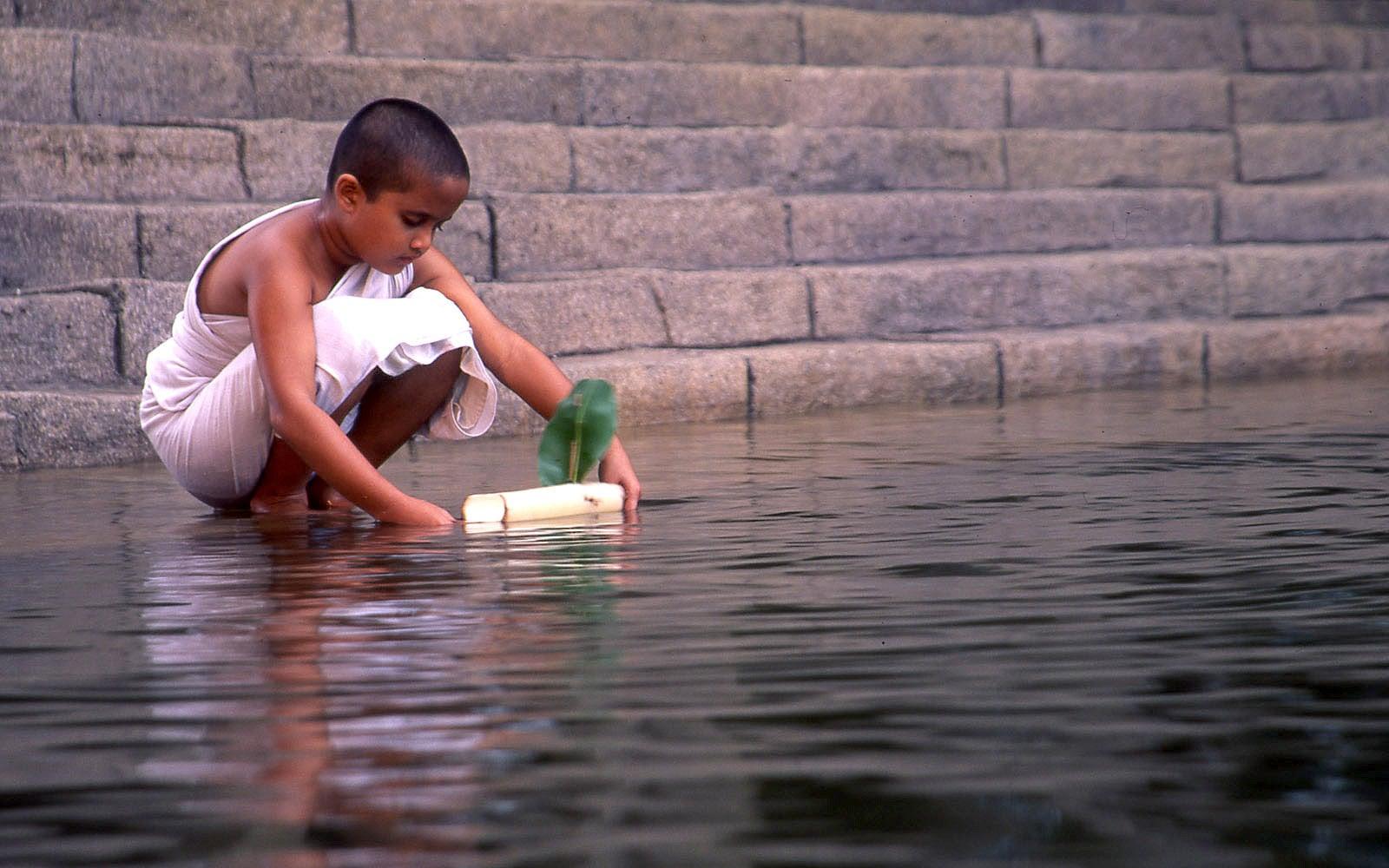Water by Deepa Mehta (Review)

In 1938, during Gandhi’s rise to prominence, certain religious traditions stated that if a woman’s husband died, a part of her died as well. In order to guarantee that she would ascend to heaven as well, the widow must live a pure and righteous life. Or else, she might be reborn to an even worse fate. To help “protect” and “preserve” widows on their path to righteousness, they were shut away in cloisters called “ashrams,” their heads shaved and wearing white saris, the outside world unable to contaminate them.
It is a place that the recently widowed Chuyia, who was barely 8 years old when her prearranged husband died, is not at all prepared for. The other widows treat her harshly, with the only exception being the elderly Patiraji, whom Chuyia affectionately calls “Auntie,” and Kalyani, a beautiful young widow who is secretly whored out to support the ashram.
Soon, however, Chuyia’s childlike innocence (and considerable stubbornness) begins to warm up the place, bringing new life to the widows’ home. And when she and Kalyani meet the handsome Narayan, a young lawyer influenced by Gandhi’s ideals, she also becomes instrumental in their burgeoning romance: a romance that flies in the face of all accepted tradition.
But if you only look at Water as the charming tale of a irrepressible little girl who brings life and hope into the lives of those she touches, than you’re missing the point entirely. Make no mistake. Deepa Mehta, who wrote and directed the film, has a much darker, more harrowing tale to tell, one driven by a deep sense of compassion and justice.
But said tale is cleverly disguised in all of the trappings that one normally associates with Indian cinema: bright, sumptuous visuals (I’ll never see a rainstorm or a river the same way again), exotic musical numbers, a definite emphasis on the overwrought and melodramatic, tragic romance, and so on.
I’ll confess that during the first two-thirds or so of the movie, I actually found myself trying not to roll my eyes at how cloying and saccharine the movie was becoming (and I’m no stranger to the “excesses” that Indian cinema typically basks in). I found myself growing rather tired of Chuyia’s “cute/stubborn kid” shenanigans, and Kalyani and Narayan’s romance, while accompanied by all manner of lovely visuals and music, was just a bit too much for me.
But as Water entered it’s final act, Mehta steers the film into decidedly darker, harrowing territory — territory that I was frankly not expecting. As the film continues, it builds up considerable pace, taking all of the melodrama and lightheartedness that came before and skillfully twisting them like a knife in the viewer’s heart until they are left with one final haunting image.
During this time, the character of Shakuntala, who is one of the commune’s leaders, slowly comes to the forefront. Initially, she’s just one of the other widows treating Chuyia harshly. An incredibly devout woman, she works harder than all of the others to maintain her purity, overseeing the commune’s daily needs and even humbly serving a local religious leader. But as secrets surrounding Kalyani and Narayan come to the surface, and Chuyia begins melting her cold exterior, Shakuntala finds herself shaken and in doubt. Perhaps for the first time, she begins questioning the daily injustice she is forced to endure simply because her husband died long ago.
Maybe it’s just me, and my affinity for movie characters that are forced to challenge and reassess their faith and beliefs, but it is Shakuntala, and not Chuyia, who is the film’s center. It is she, not Chuyia, who becomes the character that ultimately compels the audience’s sympathies, torn as she is between her undying faith and her conscience. And in the film’s final moments, it is she who ultimately takes a stand to reconcile her faith and her conscience, while perhaps sacrificing everything. Her final shot is heart-wrenching, questioning, and convicting.
For several years, Mehta and the rest of the filmmakers were harassed, protested, and sent death threats by Hindu fundamentalists outraged over the film’s questioning of traditional beliefs. Eventually, production was shut down, and forced to finish in Sri Lanka four years later (and under a fake name). But like the best “message” films, Water does not preach or cram its agenda down one’s throat (would that “Christian” filmmakers pay attention to Mehta’s approach). However, the lessons of the film, and Mehta’s convictions, become crystal clear in hindsight, when one can see how all of the elements come together, and the film is arguably more affecting, and effective, as a result.